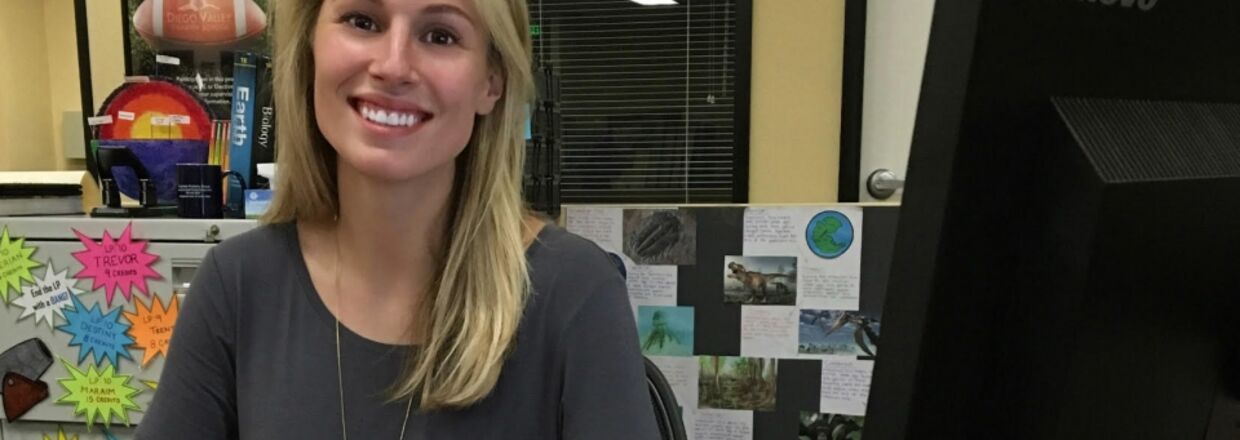
Advice From A San Diego Transplant
A Georgia native reflects on a move that helped her grow
May 26, 2017
Meghan Paulo (San Diego, ’16) grew up in Georgia, earned an advertising degree in South Carolina and had never lived more than a few hours’ drive away from home. She heard about Teach For America from a friend serving in San Antonio, ranked San Diego as a top destination in her application and was hired at Diego Valley Charter School. Then everything changed.
Q: Why move to San Diego?
A: I wanted the opportunity to throw myself into something completely new. I tried to have no preconceptions and wanted to grow as a person. In a lot of ways, it was still more challenging than I thought, but you have to be uncomfortable to grow.
Q: Can you share about one of the challenges?
A: I came with an idea of what it would be like in a classroom. Once I was out here, I was hired by an independent study school. I do one-on-one work with students. We don’t have a classroom just for us, and that definitely presented challenges. But that’s what the whole experience is about, figuring out your role and how to make it work for your students.
Q: What is it like teaching in a year-round, independent study school?
A: We are a high school, but we take students up to the age of 24 so we have a really unique population – students who left high school but want a diploma instead of a GED, immigrant students who need extra help to earn an American high school diploma, and students who the traditional setting wasn’t working out for and they are doing this instead. Not everyone comes due to special circumstances, but we definitely serve many who do.
“Be adaptable, flexible and open to change, in whatever setting you are in. Keep an open mind, especially for the first few months. Things are going to be different. You will face challenges you never expected and successes you didn’t think of either.”
Q: What is your average day like – do you even you have an average day?
A: I have a caseload (I call them “my class”) of about 40 students. As their supervising teacher, I manage their academic counseling – help them select courses, pace their learning (the goal is to complete two credits per week) and set goals for after graduation – as well as administer their elective classes. I’m also the science teacher, so I lead science instruction for my students and any others in need of science credits. A normal day would be a lot of academic counseling and going over labs or science materials, but almost half my time could be spent working with kids on mental and emotional health, making sure that’s taken care of first before we jump into content. So I wouldn't say any day is the same, it’s all over the board, but that’s what makes it fun.
Q: With such a diversity of backgrounds and experiences, how do you relate to your students?
A: I am the oldest of five, and my students are the same ages as my siblings. I feel like I am in a big sister role. Even though the issues my siblings and my students may be facing are on a different scale, at the end of the day they are all teenagers. I treat them like they are real people. It helps that I’m young, too, and they think I’m closer to their age than we really are.
Q: You were recently recognized by your principal for an increase in your students’ overall credit completion and core credit completion. How else do you measure your impact on students?
A: I really celebrate their personal progress. They are the ones sitting down to do the hard work. I’m there to add extra motivation. In terms of successes, it can be the small things, like when a student gets a job, or I help them make a resume, or acquiring life skills, like when I see students resolve a problem, not by picking a fight, but by explaining their feelings and using conflict resolution. Or when the kids decide they want to go to college. A lot start by saying they don’t want to go to college, but a few months later they tell you they are applying. That’s awesome.
Q: What advice do you have for people considering the corps?
A: Be adaptable, flexible and open to change, in whatever setting you are in. Keep an open mind, especially for the first few months. Things are going to be different. You will face challenges you never expected and successes you didn't think of either. As long as you are ready for change at any given moment, it works.


